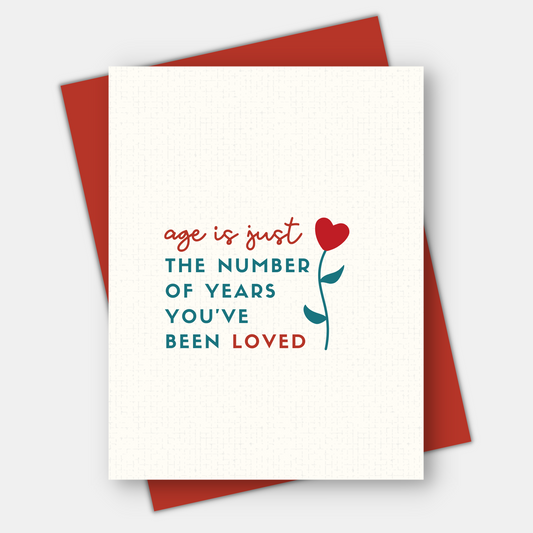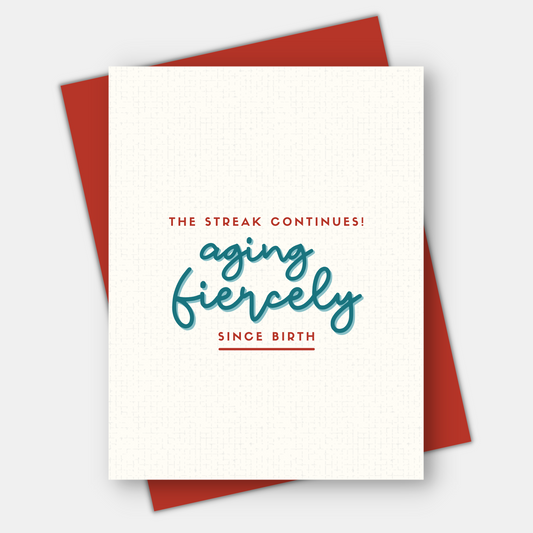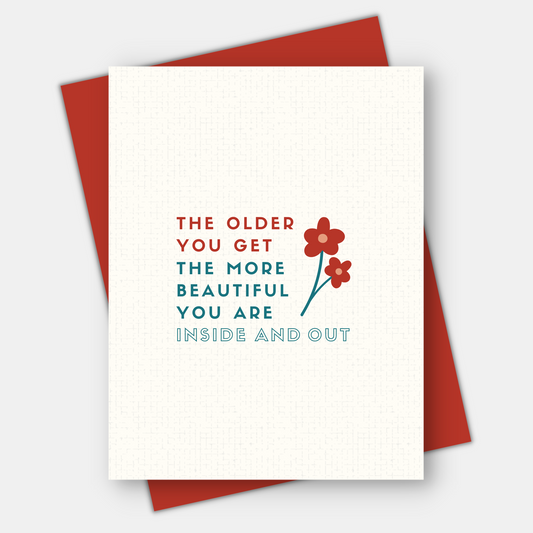Do you ever have one of those days where every time you misplace something or can’t recall a name, you declare you’re having a ‘senior moment’ instead of thinking of yourself as having too much on your plate?
Maybe you’re the type that sizes up the room whenever you walk into a social event to tally how many people appear to be older or younger than you, even though age has nothing to do with the occasion.
Or if you’re like me and wake up with aches and pains, instantly thinking it’s a result of getting older, instead of thinking maybe it’s a result of the extra-long hike, the boxes you moved, or the heavy snow you shoveled the day before?
If you recognize any of these behaviors in yourself, you’re experiencing internalized ageism, which is the negative beliefs we hold about aging and older people.
Ageist messages are everywhere.
It’s not hard to figure out where we pick up these ageist beliefs. In our youth-obsessed culture, we are constantly reminded that getting older is dreadful, and we should be doing whatever we can to defy aging.
Ageist messages include jokes about losing memory or hearing, the lack of tech-savviness amongst older adults, and the overabundance of anti-aging messages in all media forms.
The National Poll on Healthy Aging confirms that people aged 50 to 80 are barraged with negative stereotypes about getting older.
- 82% experience at least one form of ageism in their day-to-day lives
- 65% report exposure to ageist messages
- 45% experience ageism in personal interactions
What happens to all of these ageist messages we see every day? For many people, they become internalized, impacting decisions on how they live their lives.
Internalized ageism is harmful.
When you tell yourself that old is bad and young is good, you’re reinforcing negative stereotypes which can be bad for you and your health.
Internalized ageism includes thoughts that assume that feeling lonely, depressed, or sad as you get older are normal signs of aging.
Research shows internalized ageism can become a self-fulfilling prophecy. When we think we have reached the mythical state of being old, we are likely to change our behavior to confirm negative stereotypes.
“Ageism is prejudice against our own future selves..” Ashton Applewhite
Viewing life through an ageist lens can skew how we make decisions about our health, determine if and when we retire, and prevent us from adopting technologies that keep us relevant in today’s world.
If that isn’t enough motivation for you to rethink how you think about aging, consider this; Becca Levy, a public health and psychology professor at Yale, suggested that people with positive self-perceptions of aging lived 7.5 years longer than those with negative attitudes.
What you can do
Don’t get me wrong. No doubt we all experience the physical aspects of getting older, from thinning hair to vision and hearing loss. However, the way we feel about getting older significantly affects our physical and psychological trajectories.
The first step is recognizing your own internalized ageism and taking steps to address it.
Reduce your exposure to ageist messages. Much of the everyday ageism comes from television, magazines, and the internet. Research shows that those who spent more than 4 hours a day viewing media were more likely to report experiencing ageism than those that spend 2-4 hours per day viewing media.
Increase your understanding of ageism. Learn more about ageism in it’s many forms and become part of the movement to Change the Narrative about aging. Find out more about campaigns and ways to get involved in ending ageism.
Take care of your physical and mental health. Developing a healthy mind-body connection can help you function better and enjoy life more. Taking care of your emotional health, which includes how you feel about yourself, impacts your physical health.
Focus on the positive aspects of getting older. The National Poll on Healthy Aging confirms that of adults aged 50-80,
- 88% feel more comfortable being themselves
- 80% have a strong sense of purpose
- 65% think their life was better than they thought it would be
Personally, I’ve changed my behaviors since learning more about ageism and its harmful affects in my role as a Change AGEnt for Changing the Narrative.
I’ve started to call out any ‘young is good and old is bad messages’ when I see them. Especially those that contain the buzz words that label older adults in a negative way. It’s great way to spark a conversation about ageism.
Which by the way, ageism works both ways. Don’t bash the younger folks either. When you disparage millennials, or talk smack about foolish young kids, you’re guilty of ageism. Think about how you were at that age, and above all else, be kind.
And no more of those ‘funny’ ageist birthday cards. I don’t want to see them on the card rack, or worse yet, receive one. Visit Age-Friendly Vibes to find plenty of alternatives.




